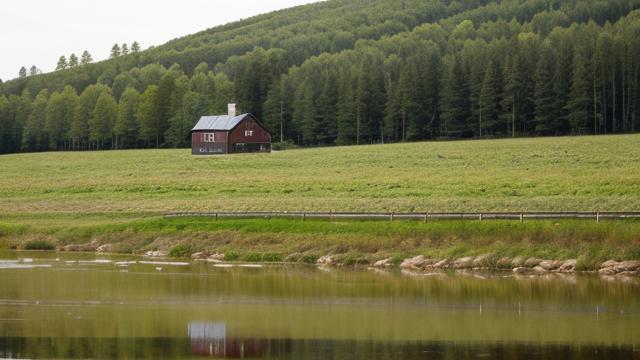An Exploration of The Sociological Implications of Disco Music on 19th Century Swedish Farming Communities
Thu, 12 Jun 2025 09:31:31 GMT

The Swedish countryside in the late 19th century - where the air was crisp, the folk were friendly, and the disco music scene was thriving.
At first glance, it may seem like an unlikely combination of rural Sweden and the dance floor sounds of the 1970s. But bear with us, dear reader, for this is a tale of how one of the most iconic genres of popular music somehow made its way to the rolling hills of 19th-century farming communities.
It all began in Stockholm, where the seeds of disco were sown by a group of avant-garde musicians who sought to disrupt the traditional Swedish folk music scene. They drew inspiration from American funk and soul artists like James Brown and Parliament-Funkadelic, but with a distinctly Scandinavian twist. The result was a unique sound that blended the earthy simplicity of traditional folk music with the futuristic sheen of disco.
Before long, this new style of music had spread throughout the countryside, where it was eagerly adopted by rural communities who were looking for something fresh and exciting to liven up their mundane lives. And what better way to get people moving than with a healthy dose of disco?
Farmers would gather in the town squares, their overalls covered in flour from last night's baking, their boots polished to a shine, and their hips shaking like nobody's business. The music was the perfect antidote to the drudgery of daily farm work - a chance for them to let loose and show off their best moves.
One such farmer was a man named Erik, who lived in the small village of Nørhaven. Erik was a hardworking fellow, devoted to his land and his family, but he had always dreamed of being a disco star. Every night after dinner, he would sneak away to the local barn and practice his spins and turns in front of the mirror.
But Erik's love of disco wasn't just about personal expression - it was also about community building. He saw the dance floor as a place where people from different walks of life could come together and celebrate their shared humanity. And so, every full moon, Erik would host epic disco parties in the barn, complete with flashing lights, fog machines, and even the occasional appearance by a guest DJ.
These parties quickly became legendary throughout the region, drawing visitors from far and wide who wanted to experience the unique magic of rural Swedish disco. And while the locals may have seemed like an unlikely bunch - farmers, bakers, and shopkeepers all united on the dance floor - they proved themselves to be some of the most enthusiastic and energetic fans in the business.
But Erik's parties were not without controversy. Some of the older villagers saw them as a threat to traditional values - a decadent indulgence that would bring ruin upon their otherwise respectable communities. And so, they did what any good Swedish farmer would do when faced with an outsider: they tried to shut it down.
One particularly vocal opponent was a woman named Astrid, who ran the local bakery and saw Erik's parties as a nuisance to her customers. She complained to the authorities about the noise and the lights, but to no avail - Erik had already secured a special permit from the regional government to host his events.
Astrid was not one to give up easily, however. She began secretly spreading rumors that Erik's disco parties were actually a front for something much more sinister - a plot by aliens to take over the world through the power of dance. It was a ridiculous charge, but it had a strange effect on the community - people began to whisper among themselves about the dancing devils who lurked in the shadows, waiting to snatch up unsuspecting villagers and drag them away to their disco doom.
As the months went by, Erik's parties continued to thrive. The more absurd the rumors became, the more they seemed to draw people in. It was as if the very idea of something being disco had become a badge of honor - proof that even the most unlikely of places could be transformed into a pulsating dance floor.
And so, we come full circle back to Erik, who remains to this day one of Sweden's most celebrated disco pioneers. His legacy lives on in the barns and town squares of rural Sweden, where the sounds of funk and soul still echo through the ages - a testament to the power of music to bring people together and transcend even the most bizarre of cultural boundaries.
In conclusion, it's hard not to laugh when you think about disco in 19th-century Swedish farming communities. But what's actually quite fascinating is how this unlikely phenomenon speaks to our fundamental human need for connection and self-expression - something that transcends time and place to speak directly to our hearts.
So the next time you're tempted to dismiss a particular cultural movement as out there, just remember Erik, the disco farmer from rural Sweden. He may have seemed like an oddball in his day, but he knew one thing for sure: that with enough funk and flash, even the most unlikely of places could become a place to call home.